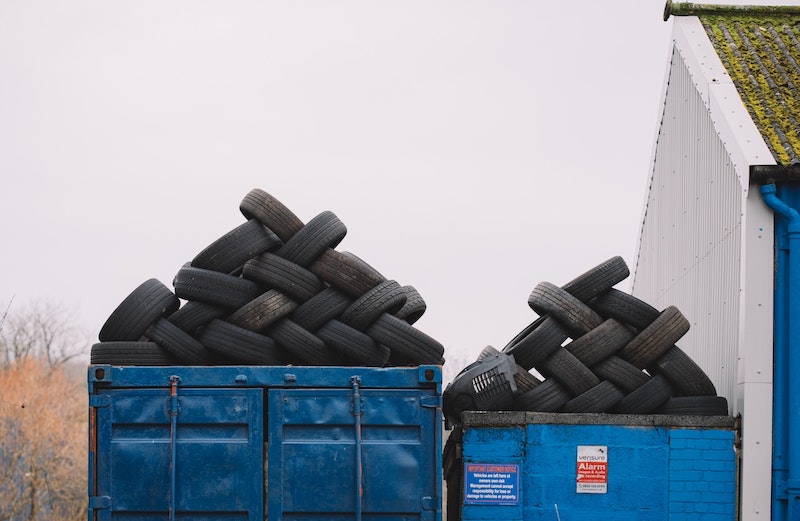Starting any business, including a tire recycling plant, often means taking a large and courageous financial leap. Savvy business people with a realistic understanding of costs and expenditures have a better chance of long-term growth and financial freedom.
As an example, imagine an optimistic and well-reasoned entrepreneur, someone a lot like you. Let’s call her Sarah. Sarah was searching for a viable and environmentally friendly business idea. When Sarah started thinking about opening a tire recycling business, she thought it would be an easy and inexpensive venture. As she began to dig deeper, she quickly realized that she had rolled into uncharted territory.
The costs of equipment, facilities, labor, and permits were more than she had initially thought. With some research and careful planning, however, Sarah was able to estimate these expenses. After a few years of diligently paying back her start-up debt, she was free from significant financial stress for the rest of her career. Here’s what she might have known and what you should know too before taking the leap into the tire recycling industry.
Start-up Costs
- Equipment:The biggest expense you’ll face is the cost of the waste tire recycling equipment needed to process and recycle tires. For example, a primary tire shredder can cost anywhere from twenty to fifty grand. A more advanced tire shredder with additional features can cost upwards of $100,000. A complete rubber powder production line can cost around a million dollars. While this might sound like a lot, tire recycling lines are likely below the average cost for industrial operation equipment.
- Facilities:You’ll need a location to store and process the tires. It could be a warehouse or industrial building that you rent or purchase. The cost of renting a facility can vary widely depending on location, but you can expect to pay anywhere from $1,500 to $5,000 per month for a warehouse. Like any real estate market, the cost of buying or building a warehouse can vary greatly depending on size and what the market is doing.
- Labor:You’ll need to hire employees to operate the equipment and manage the business. The cost of labor will depend on the number of employees you hire and their salaries. For example, if you hire five employees at an average salary of $30,000 per year, your labor costs would be $150,000. Most recycling plants require only a few employees to operate.
- Permits:You’ll need to obtain the necessary permits to operate a tire recycling business, which can vary depending on local and state regulations. Permits can range from a few hundred dollars to several thousand dollars.
While we can’t tell you how much costs will be in your area, you can use this list to help you estimate what your total start-up costs might be.
Keeping Costs Down
Here are two additional tips to reduce tire recycling costs:
1. Buy Quality Equipment
The equipment you purchase starting out can make or break your business for a few reasons:
- Equipment dictates how many tires the plant can process every day.
- The number of employees you need to run the operation depends on your equipment.
- Equipment blockages and breakdowns will limit your profits.
For these reasons it makes sense to buy the quality equipment with high capacity, limited manual operations, and a record of longevity. ECO Green supplies these kinds of shredders and conveyor lines and has a reliable track record of success serving companies worldwide.
2. Choose Your Tire Recycling Plant Location Carefully
Some tire recyclers focus on the standard tire, while others focus on even more specific niches, such as OTR recycling (4-wheel drive tires). Some make artificial turfs. Others make plugs and mats. The type of tires you process and what products you output should affect your tire recycling plant location.
For example, an OTR tire recycling facility may gain the upper hand in the industry if they set up near a popular dirt biking and off-road track. Otherwise, near auto mechanics and tire retailers that change these types of vehicles’ tires could be a wise move.
A tire recycling company that sells plugs and mats may find the best location is in the midst of the industrial area where these basic industry goods are required. Some places have tire waste problems. Look for funding and support if you are setting up a recycling plant in an area with an existing waste management issue.
Last Word:
Estimating the costs of starting a tire recycling business is crucial to determine the feasibility of the business. To ensure you avoid getting stuck with unexpected expenses, it’s worth making a spreadsheet or two with the listed costs and fees. It’s essential to conduct a feasibility study to get more accurate cost estimates and an understanding of market demand before starting a business. With a clear understanding of the costs, and a well-crafted budget, you can increase the chances of success in your tire recycling business.
